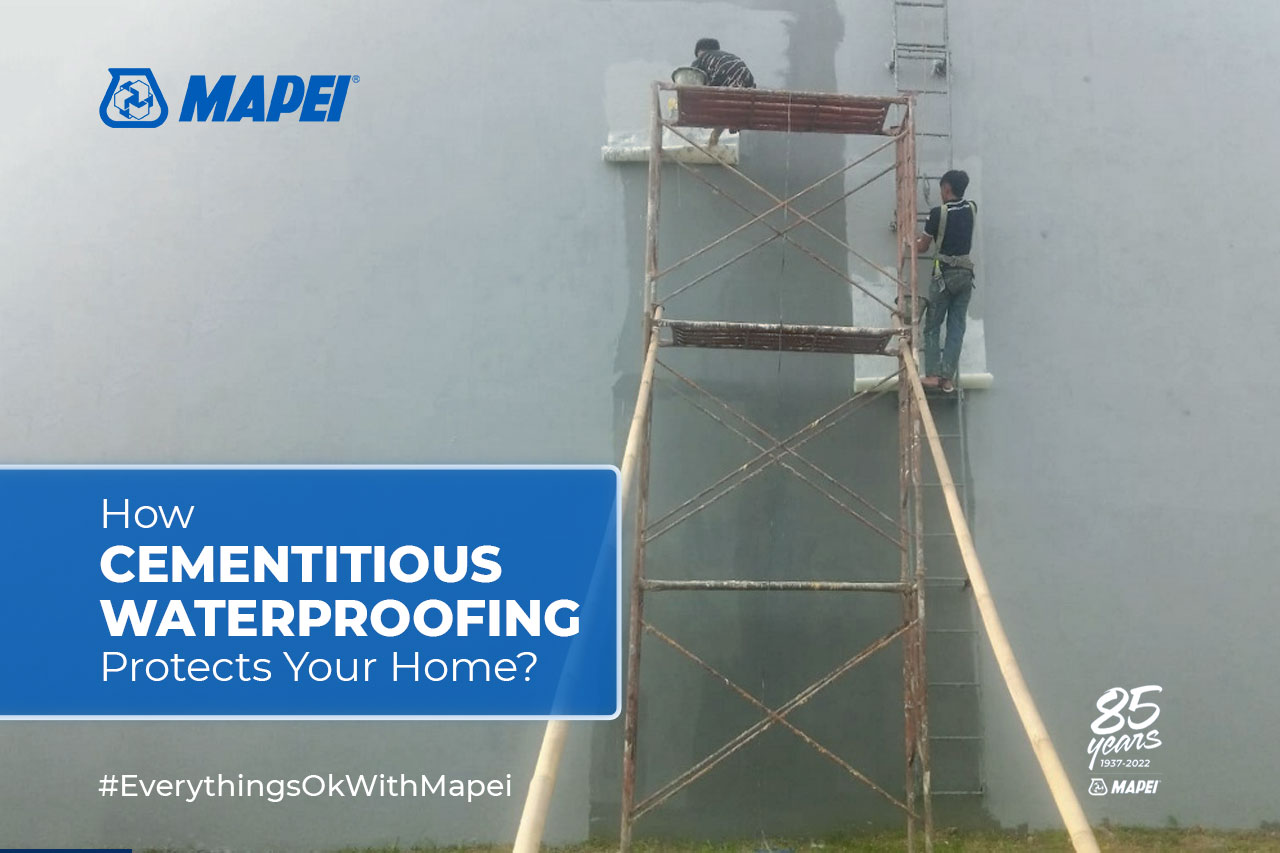
Continuous deterioration and erosion are a constant threat to concrete structures. We cannot prevent constant mechanical abrasions from occurring on most concrete surfaces, particularly floors.
Surfaces deteriorate earlier, developing gaps and cracks and losing strength due to all these combined factors. In addition, it produces water seepage, further eroding the structures from the inside and weakening the overall concrete structure. For instance, when water seeps into your driveway through cracks, it sags the interior concrete structure and increases the risk of accidents.
Sometimes, dampening signs are seen when walls and floors swell up after absorbing water via cracks and holes. It provides a haven for mold growth and creates an unfit environment for habitation. The idea of cementitious waterproofing is applicable in this situation.
With the use of a cement-based coating, concrete structures have become waterproof throughout this process. Most of the time, waterproofing protects concrete surfaces from corrosive and abrasive weather and natural elements that could degrade brickwork and concrete structures.
However, many individuals, particularly in the concrete business, are still stumbling around in the dark, trying to understand the advantages of waterproofing products. In light of this, we have discussed some of the benefits of using the cementitious waterproofing technique to coat concrete surfaces with a cement-based coating after the structures are created.
The coating produces a seamless layer over the concrete because it is cement-formed. Once the coating is put on, there won't be any ups and downs. The flattening tool makes it simple for construction workers to level the surface and remove extra cement-based coating for greater consistency. Cementitious waterproofing is carried out in both residential and commercial settings for this reason.
Cement coatings are frequently mixed with other substances to stop abrasion and corrosion brought on by weather and mechanical wear and tear. For instance, if bare concrete is exposed to sunlight for a number of hours, the heat will cause it to break readily.
Cementitious waterproofing also has the advantage of not reacting chemically with concrete surfaces. However, certain substances, notably acids, strongly react with concrete. Therefore, if your location has acid rain or the flooring is frequently exposed to various chemicals, it won't be long before the concrete surface shows wear and tear symptoms.
The core structure of the building subsequently weakens and is susceptible to more harm. Because of this, the coating is put on after the concrete dries and hardens. It resists chemical processes, particularly oxidative processes that remove the top layer of concrete structures.
Though some materials are utilized to coat concrete structures, their affinity for the concrete surfaces could be better. They deteriorate more quickly. As a result, they leave the structure vulnerable to weather corrosion, chemical reactions, and mechanical abrasions. The idea of waterproofing with cement enters the picture here.
The coating's components have an excellent connection to the solid slab. As a result, it creates a solid bond and prevents corrosive substances from reacting with concrete structures.
Since we have explained the main advantages of putting cementitious waterproof finishes to concrete surfaces, you need to discuss this with your builder and have the work done as soon as possible. The contractor will choose what additives to blend with cement and water according to the type of concrete utilized, traffic flow, and corrosive substances exposed to the surface. It is one of the most affordable waterproofing techniques for concrete buildings. We have various products related to cementitious waterproofing.

Comments
Load more comments